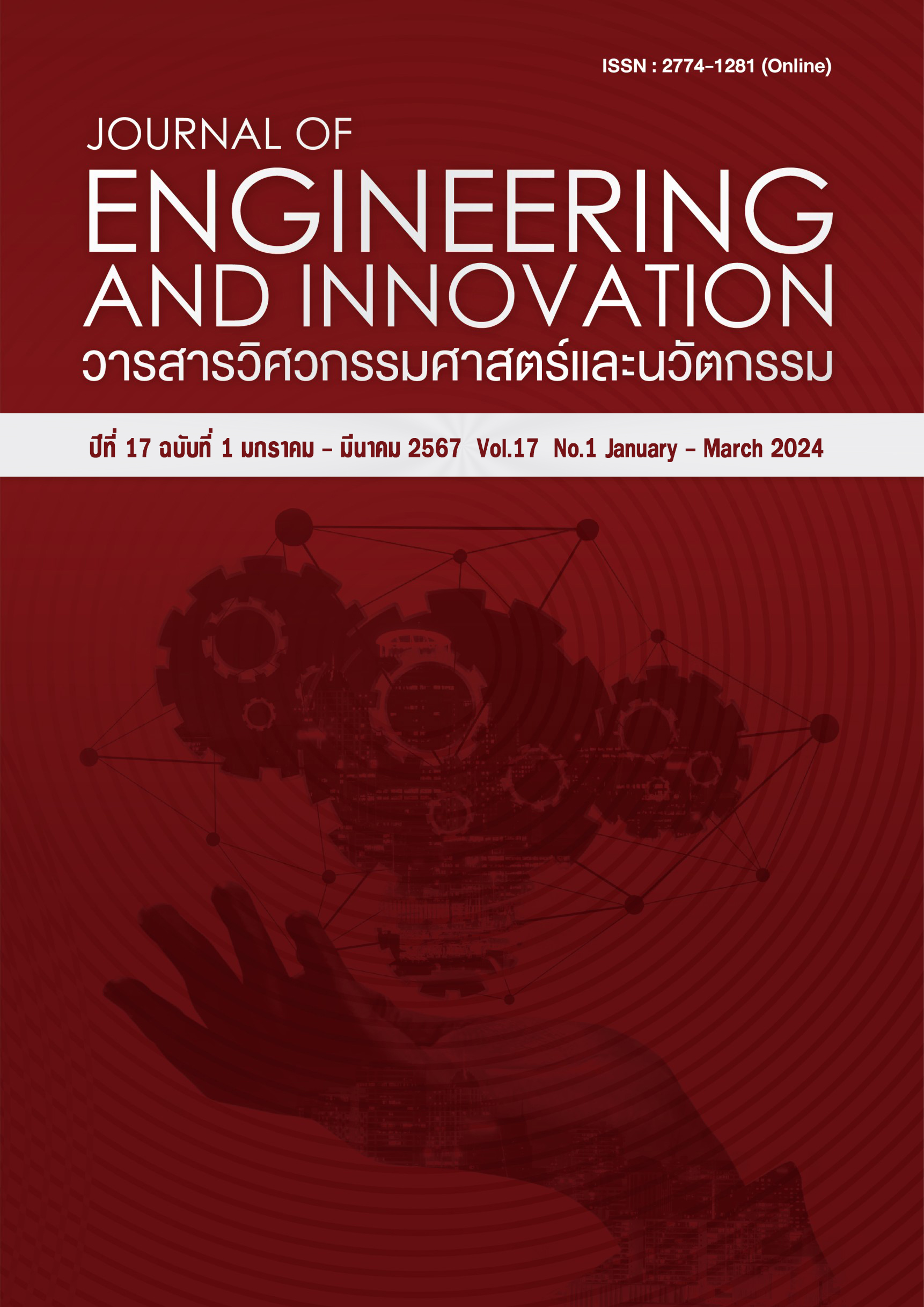Simulation and Experimental Results the Maximum Power Point Tracking of PV Stand-alone System Using Fixed Step Size Incremental Conductance Method
Main Article Content
Abstract
Tracking the maximum power point of a PV system is essential for both stand-alone and grid-connected PV systems to ensure that the solar cells can produce the highest power for different environmental conditions. This paper proposes the maximum power point tracking for a PV stand-alone system using incremental conductance method. The control principle of the proposed method uses the duty cycle adjustment via the buck converter to obtain the maximum power output of stand-alone PV system. The control performance was confirmed by MATLAB/Simulink simulation and experiment results. It has been demonstrated that the maximum power point tracking of stand-alone PV system by incremental conductance method can follow the peak power point in all environmental changes.
Article Details
References
Alrikabi N. K. M. A. Renewable Energy Types. Journal of Clean Energy Technologies. 2014. Vol.2. no. 1. pp. 61-64.
Shiau J.K., Wei Y.C. and Chen B.C. A Study on the Fuzzy-Logic-Based Solar Power MPPT Algorithms Using Different Fuzzy Input Variables. Tamkang University. 2015. 8(2): 100-127.
Podder A. K., Roy N. K. and Pota H. R. MPPT methods for solar PV systems: a critical review based on tracking nature. IET Renewable Power Generation. 2019. vol. 13. no. 10. pp. 1615-1632.
Esram T. and Chapman P. L. Comparison of Photovoltaic Array Maximum Power Point Tracking Techniques. IEEE Transactions on Energy Conversion. 2007. vol. 22. no. 2. pp. 439-449.
Strunz K., Abbasi E., and Huu D. N. DC Microgrid for Wind and Solar Power Integration. IEEE Journal of Emerging and Selected Topics in Power Electronics. 2014. vol. 2. no. 1. pp. 115-126.
Ngan M. S. and Tan C. W. A study of maximum power point tracking algorithms for stand-alone Photovoltaic Systems. 2011 IEEE Applied Power Electronics Colloquium (IAPEC). 2011. pp. 22-27.
Ahmad J. A Fractional Open Circuit Voltage Based Maximum Power Point Tracker for Photovoltaic Arrays. IEEE 2nd INternational Conf. on Saffware Tech. and Eng. Oct 2010. vol.1. pp.247-250.
Alli S. S., Jovanović S., Poure P. and Jamshidpour E. MPPT and output voltage control of Photovoltaic systems using a Single-Switch DC-DC converter. 2016 IEEE International Energy Conference (ENERGYCON). 2016. pp. 1-6.
Diaz N., Luna A. and Duarte O. Improved MPPT short-circuit current method by a fuzzy short- circuit current estimator. IEEE Energy Conversion Congress and Exposition. Phoenix. AZ. Sept 2011, pp.211-218.
Thueanpangthaim C., Wongyai P., Areerak K. and Areerak K. The maximum power point tracking for stand-alone photovoltaic system using current based approach. 2017 International Electrical Engineering Congress (iEECON). 2017. pp. 1-4.
Boukenoui R., Bradai R., Mellit A., Ghanes M. and Salhi H. Comparative analysis of P&O, modified hill climbing-FLC, and adaptive P&O-FLC MPPTs for microgrid standalone PV system. 2015 International Conference on Renewable Energy Research and Applications (ICRERA). 2015. pp. 1095-1099.
Halder T. A maximum power point tracker (MPPT) using the incremental conductance (INC) technique. 7th India International Conference on Power Electronics (IICPE). 17-19 November 2016.
Abdourraziq M. A., Maaroufi M., Ouassaid M. A new variable step size INC MPPT method for PV systems. International Conference on Multimedia Computing and Systems (ICMCS). 14-16 April 2014.
Jain K., Gupta M. and Bohre A. K. Implementation and Comparative Analysis of P&O and INC MPPT Method for PV System. 8th IEEE India International Conference on Power Electronics (IICPE). 13-15 Dec 2018. pp 1-6.
Sera D., Mathe L., Kerekes T., Spataru S. V. and Teodorescu R. On the Perturb-and-Observe and Incremental Conductance MPPT Methods for PV Systems. IEEE Journal of Photovoltaics. 2013. vol. 3. no. 3. pp. 1070-1078.

